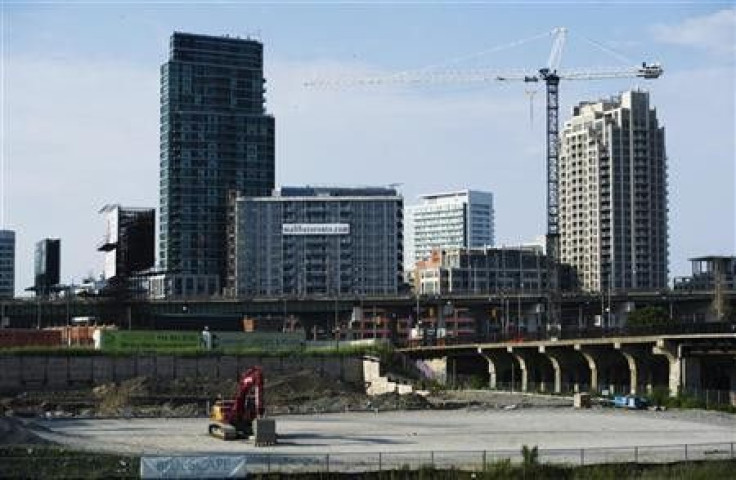Housing starts slump even as prices rise

Canadian housing starts slumped last month, hurt by weakness in the condominium sector, in the latest sign that a property boom fueled by low interest rates is under pressure from global economic uncertainty.
But the news was not all negative, with slightly older data showing housing prices were still on the rise in many markets.
Housing starts fell in November to a seasonally adjusted annualized rate of 181,100 units from an upwardly revised 208,800 units a month earlier, Canada Mortgage and Housing Corp said on Thursday.
The number of starts was below the consensus expectation of analysts, who had called for 200,000.
The miss was partly due to a drop in construction of multi-residential buildings such as condominiums. The seasonally adjusted annual rate of multiple starts in urban areas fell 23.3 per cent to 95,300 units.
While starts dropped to their lowest level since February, the details of this report are hardly troubling. The volatile multiple-unit sector has corrected from a bout of surprising strength earlier in the fall, Doug Porter, deputy chief economist with BMO Capital Markets, said in a note to clients.
Even so, we do expect homebuilding activity to simmer down somewhat in 2012 amid softer consumer confidence and a recently cooler job market.
Canada avoided the subprime housing boom and collapse seen in the United States, which triggered the global financial crisis, with local markets slumping only briefly.
But the Bank of Canada's decision to cut interest rates to a record low fueled a post-crisis real estate boom, with sales and prices in major markets like Toronto and Vancouver soaring by double digits.
The fear now for many policymakers is that a fresh asset bubble could be in the works.
On Thursday, the Bank of Canada identified high household debt as a risk to the stability of the financial system, though it added the magnitude of the risk remains unchanged from June.
The central bank said that while the government's moves to tighten mortgage rules have helped slow debt accumulation, credit continues to rise as a share of personal disposable income, and the overall financial situation of households remains strained.
But many analysts believe the housing market will see a soft landing rather than a crash.
The housing starts data, reinforces the overarching theme of a gradual moderation in the housing market. Indeed, housing market activity is expected to cool over 2012 in line with our expectation of a modest easing in existing home prices, Mazen Issa, Canada macro strategist with TD Securities, said in research note.
Separate data from Statistics Canada on Thursday showed new home prices climbed 0.2 percent in October from September, matching the market forecast, as housing costs rose in nine of 21 cities surveyed.
The heavily populated Toronto area, along with Edmonton, in the oil-rich province of Alberta, contributed most to the gain in the new housing price index.
Downward pressure on prices came from the West Coast cities of Vancouver and Victoria, where the housing market has eased from extreme highs, described by some as a mini-bubble.
Nationwide, prices rose 2.5 percent in the 12 months to October and have been well above the pre-recession levels of 2008 since mid-2010.
Prices were unchanged in nine metropolitan regions and fell in three.
The cost of land only rose 0.2 percent in the month, as did housing-only prices, Statscan said.
© Copyright Thomson Reuters 2024. All rights reserved.











